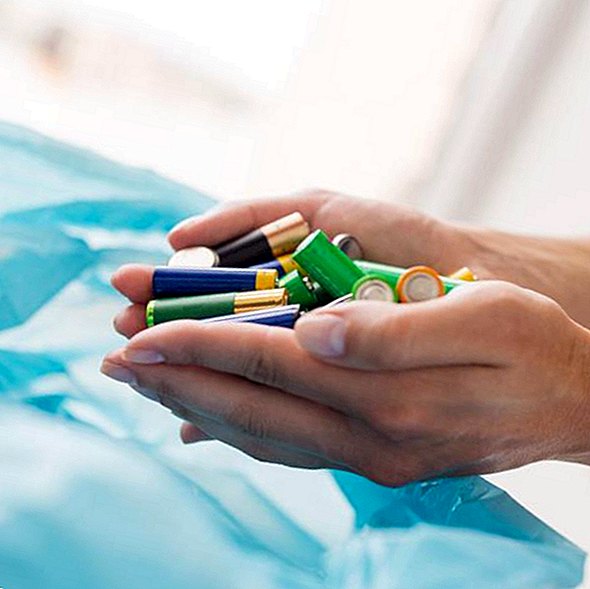Dispose of batteries: How to do it right!

Dispose of batteries: What is in batteries?
Batteries are incredibly practical and stuck in many useful devices. Whether alarm clock, fairy lights or kitchen scales? without the battery much would be more complicated. But batteries are included too dangerous ingredients.
- heavy metals
- mercury
- cadmium
- lead
If batteries get into the groundwater via the household waste, it affects theenvironment and the Drinking water is damaged. Ultimately, we harm ourselves if we do not properly handle the disposal of batteries.
In addition, batteries also consist of many raw materialsthat are not eligible for recycling.
- zinc
- iron
- nickel
- silver
You see, the batteries from your devices need in a special way for disposal are given. The answers to this question are now answered.
Dispose of batteries: Law requires withdrawal
In order for the disposal of batteries and accumulators works, there is now a Battery law (Battg), that manufacturers are obliged to take back old batteries.
A so-called return system, the ? Common take-back system batteries?, organized the return of the empty waste batteries by the seller. These then forward the batteries to the original manufacturers. Thus the system resembles the PET returnable bottles principle.
Dispose of batteries: Here you will get rid of them!
- Supermarket / shops: Wherever you can buy batteries, you can also return them. There are collection points in the entrance area for this purpose. It is completely irrelevant where you bought the batteries before. You can return them everywhere.
- Yellow boxes: For larger batteries, such as in your smartphone or laptop, there are yellow boxes in construction and electrical markets.
- recycling center: Here you will get rid of all kinds of batteries.
- petrol stations: Here you can deliver smaller batteries and rechargeable batteries as in supermarkets.
Usually you will find in all these places Separately designated collection points for easy disposal. It is important that you understand that batteries and rechargeable batteries should never be disposed of with household waste.
Dispose of batteries: Where do I store my old batteries?
Maybe you use so many portable batteries that you use for disposal do not run to the supermarket every week want. For the Storage of empty waste batteries and rechargeable batteries you should note the following points:
- Temperature: Do not store batteries in direct sunlight, otherwise there is a risk of them leaking or leaking. A cool, dry place is recommended.
- For sure: Batteries are not near children or pets. So do not let them lie around wildly in the apartment, but get you a separate filing for it.
- Leak: When batteries leak, use a cloth or gloves and do not touch them with your bare hands. For delivery to the collection points you pack this best in a plastic bag.
Dispose of batteries: 3 more tips!
- Date: Pay attention to the best before date when buying. Even if you do not use the battery, it loses power over time.
- Model: Ideally you use batteries from the same manufacturer in one device. These have a nearly identical runtime and you prevent annoying functional problems due to half performance.
- Lead: In cars and other vehicles are mostly starter batteries made of lead. Again, household garbage is prohibited! There are even fines up to 2500 euros. Due to the previously introduced battery law (BattG), these must also be taken back by the dealers.
You also have equipment for disposal? We'll show you how to dispose of electronic waste. Also important, dispose of wallpaper: So it? S! And while you're at it: dispose of styrofoam also wants to be learned ...
Videotipp: So much waste is produced by tampons and bandages











